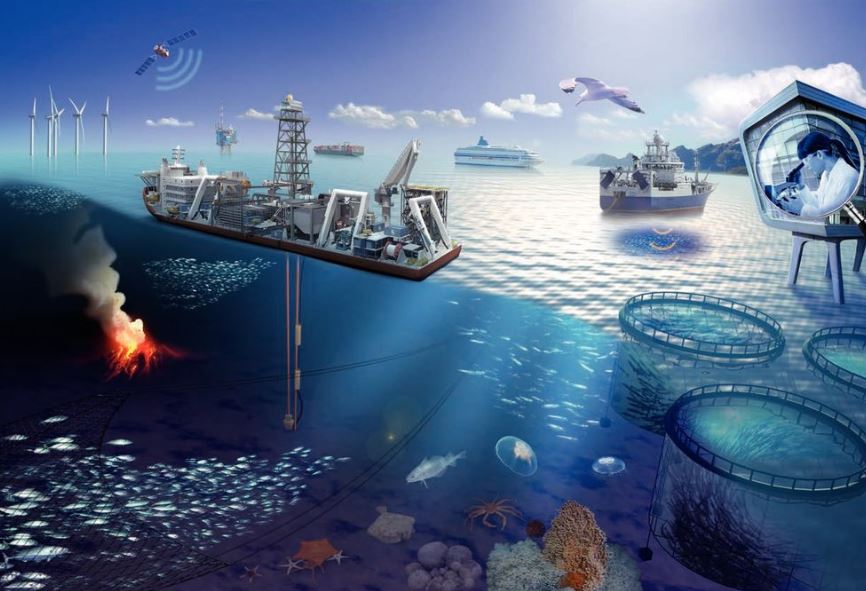Natural Intelligence for Sustainable Living
Observing nature makes you realise that nature is very intelligent, hence the term “Natural Intelligence”. Just like Artificial Intelligence, we have only scratched the surface in our understanding of it. (Radha Goenka, “It Takes a Forest: Green biodiverse corridors can increase resilience of cities, fight climate change,” The ideas Page, The Indian Express, Tuesday, September 3, 2024)
Introduction
Natural intelligence is the unique ability of living organisms to learn from their surroundings, adapt to new challenges, and solve problems in order to survive and thrive. Unlike artificial intelligence, which is programmed by humans, natural intelligence is developed through millions of years of evolution and is evident in the behaviours and interactions of both humans and animals. For example, a bird might learn to find food by observing its surroundings and remembering where the food sources are. This shows how animals learn from their experiences and use that knowledge to survive and thrive in their environments. Natural intelligence also plays a crucial role in maintaining the balance and health of ecosystems, and enhancing the resilience of cities through biodiversity. It also includes the ability of different species to use tools, communicate, and cooperate in ways that benefit their survival. This essay explores the various ways natural intelligence manifests in humans, animals, ecosystems, and urban planning, highlighting its importance in promoting sustainable living and fostering a deeper connection with the natural world.
Natural Intelligence in Humans
Humans have developed natural intelligence over millions of years, which has helped them survive and grow. Early humans had to recognise dangerous animals, find food and water, and adapt to changing weather. As humans evolved, their intelligence became more complex, allowing them to create tools, build shelters, and develop communities. Today, natural intelligence helps people understand the natural world, like plants, animals, and weather patterns. People with high natural intelligence often feel a strong connection to nature and work in fields like biology, ecology, and environmental science.
Natural Intelligence in Animals
Natural intelligence is not limited to humans; animals also show remarkable abilities. Dolphins, for instance, are known for their problem-solving skills and ability to communicate using complex sounds. Chimpanzees use sticks to fish termites out of mounds and rocks to crack open nuts, showing their ability to use tools and teach these skills to others. Crows can solve puzzles that require understanding of water displacement to access food, demonstrating their ability to plan and innovate. Even elephants show natural intelligence through their deep social bonds and emotional understanding, such as consoling distressed group members and mourning their dead. These examples show how animals use intelligence to adapt, survive, and thrive in their environments.
Natural Intelligence in Ecosystems
Natural intelligence is also visible in ecosystems. An ecosystem is a community of living things interacting with their environment. In a forest, for example, trees are connected by underground networks of fungi, known as the “Wood Wide Web,” which helps them share nutrients and warn each other of dangers like pests. This network allows the forest to maintain balance and support a variety of life forms, showing a form of intelligence that helps the entire ecosystem survive and adapt. Coral reefs, too, show natural intelligence through the mutualistic relationships between coral polyps and algae, where both organisms help each other survive, demonstrating a complex interdependence within ecosystems.
Natural Intelligence in Urban Planning
Natural intelligence is not only important in wild ecosystems but also in urban areas. Cities can use natural intelligence to improve their resilience against climate change by incorporating biodiverse green corridors. These corridors are networks of plants, trees, and other vegetation that connect isolated green spaces in cities. They help cool down urban areas, improve air quality, and support wildlife. For example, Medellin in Colombia created green corridors that led to cleaner air and a cooler city environment. In Mumbai, creating green corridors and protecting mangroves can help combat coastal erosion and enhance biodiversity. This shows that by learning from nature and using natural intelligence, cities can become more sustainable and better equipped to handle environmental challenges.
Benefits of Natural Intelligence
Natural intelligence helps humans and animals survive by learning and adapting to their surroundings. It also helps in maintaining a balanced environment. For example, the reintroduction of wolves into Yellowstone National Park in the United States restored the park’s ecosystem. Wolves controlled the population of deer and elk, which allowed vegetation to recover and increased the number of other animals, such as beavers. This is an example of how natural intelligence in the form of predator-prey relationships helps maintain balance in nature. Similarly, sea otters maintain the health of kelp forests by preying on sea urchins, showing how individual species play crucial roles in their environments.
Comparison with Artificial Intelligence
While natural intelligence has evolved over millions of years through natural processes, artificial intelligence (AI) is created by humans using computers and algorithms. AI can perform specific tasks, like playing games or recognising faces, much faster and more accurately than humans. However, AI lacks the flexibility and adaptability of natural intelligence. Humans and animals can learn from experience and adapt to new situations, while AI systems often need extensive programming and training to handle new tasks.
Importance of Understanding Natural Intelligence
Understanding natural intelligence can help us interact better with the natural world. By recognising the importance of natural intelligence, we can develop a stronger connection to nature, leading to more environmentally responsible behaviours like recycling, conserving water, and supporting conservation efforts. It also encourages us to create biodiverse spaces, such as green corridors in cities, which help reduce heat, improve air quality, and support urban wildlife. Protecting forests and other natural habitats also helps us benefit from natural intelligence by maintaining ecosystems that provide clean air, water, and food.
Conclusion
Natural intelligence is a fascinating concept that shows the wisdom and complex systems present in nature. It is evident in humans, animals, ecosystems, and urban planning. By studying and understanding natural intelligence, we can learn valuable lessons about survival, adaptation, and maintaining balance in our world. This knowledge can help us make better decisions for sustainable living, enhance the resilience of our cities, and protect our planet for future generations. By respecting and learning from natural intelligence, including how animals use tools and ecosystems maintain balance, we can create a healthier, more sustainable future for all living beings.




